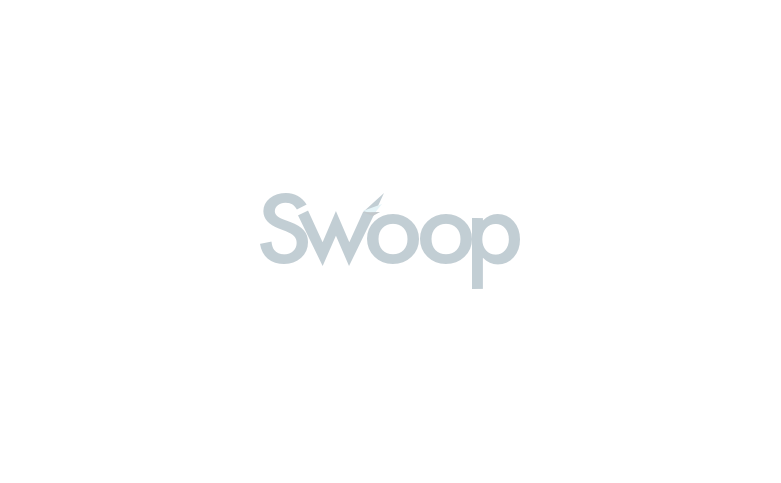TABLE OF CONTENTS
Page written by Chris Godfrey. Last reviewed on October 9, 2024. Next review due October 1, 2026.

Interest charges on business loans can add up, sometimes leaving US business owners paying thousands or even tens of thousands of dollars over the term of the loan. However, there are other options: Low-interest business loans are specialized commercial financing options that come with favorable interest rates and lower fees that can significantly reduce the cost of borrowing. Read on to find out more about these types of loans and how you can get one.
A low-interest business loan is what it says on the tin – commercial financing that comes with reduced interest rates and fees. Provided by banks, credit unions, online lenders and some non-profits, these types of loans can drastically shrink the amount you spend on borrowing and leave you with more money in your working capital account. You will typically need good credit, a solid business track record and strong cashflow to get the lowest interest rates. Loan terms can be anywhere from 1 to 25 years or more.
Low-interest loans can be obtained for almost any type of business purpose – covering day to day costs, financing business acquisitions, buying equipment and inventory, even purchasing real estate and land.
Low-interest business loans come in all shapes and sizes:
SBA business loans are guaranteed by the US Small Business Administration (SBA). The SBA does not actually provide the loans themselves, but they guarantee a portion of the loan that is provided by participating lenders, such as banks, credit unions and community organizations. Because these loans are backed by the federal government, they traditionally come with lower interest rates and fees. However, be aware that to obtain an SBA loan you will usually need good credit, have a sound business purpose, operate for profit, meet SBA size standards and demonstrate the ability to repay the loan.
This is the simplest form of low interest business loan. You receive a single, lump-sum cash injection and then pay it back in regular instalments, plus interest and any fees, over a fixed period of anywhere from 1 to 25 years. Depending on the what the loan is being used for – such as buying assets that the lender can place a lien on – it may be possible to secure the funds without providing added collateral, although interest rates and fees may be higher.
A business loan that functions like a high-value credit card. This kind of loan is ideal for organizations that want maximum flexibility or for investment situations where the total cash required is unknown.
Withdraw as much as you want when you want from a loan facility up to the limit of your borrowing. Because you only pay Interest on the sum you have withdrawn (not the whole line), this type of financing may be cheaper than other commercial loans. Repay on a set or flexible schedule. Collateral may be required.
Equipment loans are ‘self-collateralizing’ – they use the asset you’re financing as security, similar to a car loan or a residential mortgage. Once the loan is approved, the lender sends the funds to the equipment vendor, who then delivers the machinery. You use the equipment as you pay for it and the lender maintains a lien on the title to the machinery during the term of the loan. No other collateral is required.
SBA Microloans come with low interest rates, are available up to $50,000 and can usually be obtained with FICO scores as low as 500, or even with no credit score at all. However, these loans often require collateral or a personal guarantee that makes you personally responsible for the debt, not your business. Community Advantage loans function like regular low-interest SBA 7a business loans but they come with a maximum loan sum of $350,000 and other features that may make them easier to obtain.
Low interest business loans may be obtained from a variety of lenders:
Main street banks and credit unions can provide different types of business loan and they typically charge lower interest rates than other, alternative lenders. To obtain a low-interest loan from these institutions you will usually need good credit, an established business with good cashflow and a compelling business plan. Note that bank loans can be slow to fund, and you will usually need to provide several years of financial records, including business and personal tax returns.
SBA loans are provided by banks, credit unions, community organizations and some online lenders. To provide an SBA loan they must comply with strict rules and qualifying criteria set by the US Small Business Administration (SBA). This can make the application process very slow.
Online lenders, also known as alternative lenders, are typically more flexible than banks and credit unions – offering streamlined application processes and the deepest range of loans to choose from. Although online lenders tend to charge slightly higher interest rates than their main street rivals, paperwork can be minimal, and you may be able to get your loan approval within minutes and have funds in your bank account the next business day.
If you’re struggling to secure financing via traditional channels, nonprofit and community-based lenders may be your solution. These organizations tend to focus their lending efforts on traditionally underserved businesses, including women, minority-owned businesses and those located in low-income communities. Some organizations also work with startups or businesses with bad credit.

Pros
The total sum of interest you pay over the term of the loan will be less with low-interest financing than it may be with other forms of funding.
Interest charges and fees on some business loans can add up to many $thousands over the term of the loan. With low-interest loans these costs are reduced, leaving you with more cash to help your business grow.

Cons:
Loans with the lowest interest rates are typically only available to businesses with stellar credit and a good track history. If your credit is weak or your business income is patchy, you may find it very difficult to obtain these types of financing.
Many low-interest loans will ask that you provide collateral to the lender.
Application criteria will vary by lender and according to the type of low-interest business loan you are applying for. However, you can improve your chances of getting approved by preparing in advance. Key tasks to take care of include:
If you’re having difficulty securing a low-interest business loan, consider these alternatives:
With a secured business loan you provide hard assets, such as real estate, plant and machinery, or inventory as security for the loan. The lender holds a lien on the assets until the loan is paid back, then full ownership returns to you. Secured loans typically come with lower interest rates and fees than many other business loans.
Also known as account receivables financing, this type of loan allows you to borrow against the value of your unpaid invoices and is best for B2B organizations. The lender will usually provide up to 95% of the invoice value within a few days or even hours of the bill being raised. You may still be responsible for collecting the cash from your clients, or the lender (also known as the ‘factor’) may collect on your behalf. If you collect, you must repay the lender on their schedule. If they collect, they will take back their advance from the client’s payment and then pass any residual sum (after charging interest and fees) back to you. Your invoices act as collateral for the loan, no other security is required.
Available for businesses that accept customer payments by credit and debit card. You borrow against the value of your card sales. As your card sales increase, your borrowing limit goes up. Pay the loan back with a fixed percentage of your card sales on a daily, weekly or monthly basis. Your sales act as security for the loan, no added collateral is required.
Business grants are free money, they do not have to be repaid and you incur no interest charges. There are literally thousands of grants available across the US and they’re provided by federal, state and local governments as well as foundations, non-profits and other organizations. The only downside to this funding route is the fact that small business grants are usually highly competitive, and they often come with strict qualifying rules.
For a low interest loan or any type of business loan, working with business finance experts can make all the difference when applying for funding. Contact Swoop to discuss your borrowing needs, get help with your application and to compare high-quality business loans from a choice of lenders. Give your business the financial support it deserves. Register with Swoop today.
Chris is a freelance copywriter and content creator. He has been active in the marketing, advertising, and publishing industries for more than twenty-five years. Writing for Wells Fargo Bank, Visa, Experian, Ebay, Flywire, insurers and pension funds, his words have appeared online and in print to inform, entertain and explain the complex world of US consumer and business finance.
Swoop promise
At Swoop we want to make it easy for SMEs to understand the sometimes overwhelming world of business finance and insurance. Our goal is simple – to distill complex topics, unravel jargon, offer transparent and impartial information, and empower businesses to make smart financial decisions with confidence.
Find out more about Swoop’s editorial principles by reading our editorial policy.
Create your free Swoop account to get your free business loan quote for up to $100,000 today
Related pages
Get your free Low interest business loans quote today
Join the 95,000+ businesses just like yours getting the Swoop newsletter.
Free. No spam. Opt out whenever you like.
Kingfisher Way, Silverlink Business Park, Newcastle upon Tyne, NE28 9NX, UK
View in Google Maps35 Bull Street, Lewis Building, Birmingham B4 6AF, UK
View in Google MapsAberystwyth Innovation and Enterprise Campus
Gogerddan Campus
Aberystwyth University
Ceredigion
SY23 3EE
Dogpatch Labs, The CHQ Building, Custom House Quay, Dublin, Ireland
View in Google MapsSuite 801, Level 8, 84 Pitt Street, Sydney, NSW 2000, Australia
View in Google Maps43 W 23rd St, New York, NY 10010, United States
View in Google Maps21 Dreyer Street, Cape Town, South Africa, 7708
View in Google MapsClever finance tips and the latest news
Delivered to your inbox monthly
Join the 95,000+ businesses just like yours getting the Swoop newsletter. Free. No spam. Opt out whenever you like.




